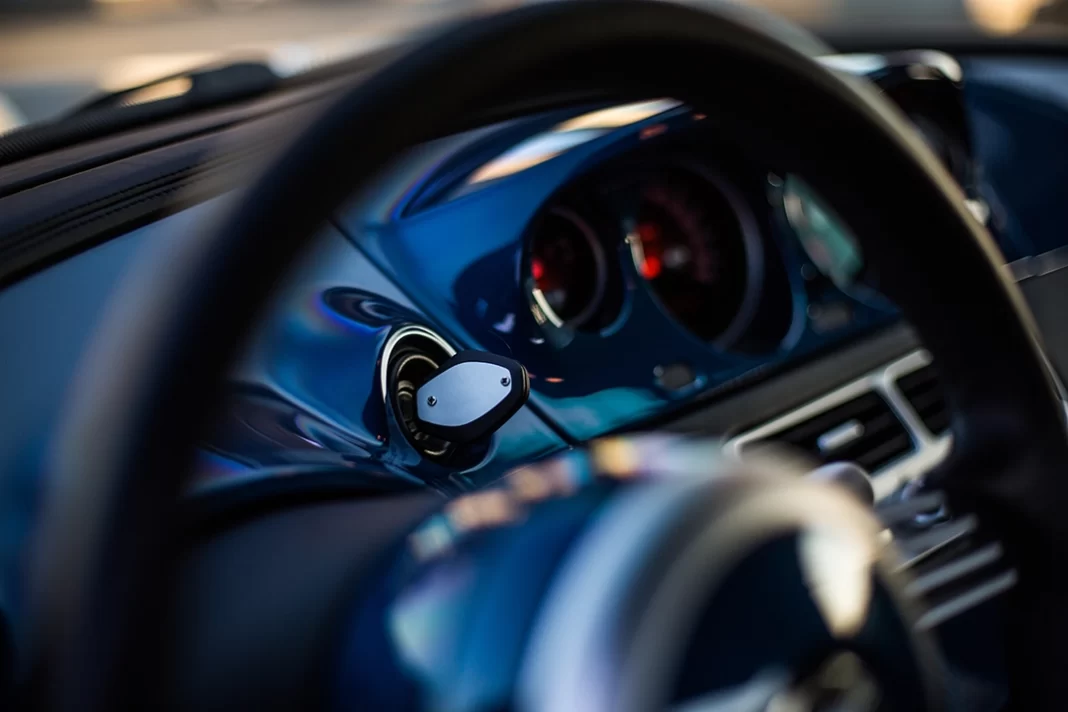Ford is making headlines with a new patent filing that outlines a system capable of spying on in-car conversations to deliver targeted advertisements. The patent, titled “Vehicle Audio Signal Processing for Targeted Content Delivery,” describes a system designed to monitor passenger discussions and analyze vehicle data like location, speed, and route information. The goal is to display relevant ads on the vehicle’s dashboard based on these factors.
How the system works
According to the patent document, the system would use built-in microphones to capture in-car audio signals.

This diagram shows how the vehicle’s internal components, such as the voice command system and sensor platform, interact with the controller to capture in-car audio and display targeted ads. The network connects the system to a service provider for content delivery.
By processing these signals, the system can identify specific keywords from conversations, which would then trigger corresponding advertisements. For instance, if passengers mention needing a place to eat, the system could suggest nearby restaurants.
Additionally, the system would leverage various vehicle data points—such as the car’s real-time location, speed, and trip details—to personalize the ads even further. This means that the content shown could vary depending on whether the car is on a long trip, driving through a specific area, or commuting daily.
Data privacy and security concerns
The potential for the system to spy on conversations has sparked considerable privacy concerns. While Ford has not confirmed whether the system will be implemented, privacy advocates have already begun questioning the implications of such technology. If the system were to go live, it would raise issues about how much personal data is being collected and how it is being used.
Ford’s patent also leaves unanswered questions regarding the level of transparency and consent that passengers would have when using such a system. Could users opt out of this data collection, or would the system be automatic? As it stands, the patent filing provides little clarity on these critical points.
Potential industry impact
Ford’s filing is just one part of a broader movement in the automotive and tech industries toward more data-driven, personalised experiences for drivers and passengers. As companies look for new ways to monetize the time spent in vehicles, targeted advertising could become a key revenue stream. However, this development raises the stakes for privacy, with automakers potentially finding themselves at odds with consumer expectations and regulatory standards.
Some speculate that Ford’s patent, if developed, could lead to a new era of smart advertising that integrates seamlessly with in-car entertainment systems. Yet, with heightened awareness around data security, the company would need to ensure that any such system complies with evolving privacy laws.
Consumer reactions
The reaction to this concept has been mixed. While some consumers are intrigued by the idea of receiving ads tailored to their specific needs during a trip, many are alarmed at the notion of being spied on inside their vehicles. The growing concern over the collection and use of personal data makes this patent filing particularly controversial.
Many have questioned whether Ford’s system would respect the boundaries of user consent or if it would operate without explicit permission from passengers. As similar technologies are being explored by other major players in the auto and tech industries, Ford’s move could be a signal of things to come in the in-car experience space.
Ford’s new patent filing for conversation-based advertising is part of a growing trend to transform vehicles into more connected, data-driven environments. However, the potential for the system to spy on passengers raises critical questions about privacy, data security, and consumer consent. As this technology develops, it will be important to see how Ford and the broader industry address these concerns to maintain trust with consumers.





